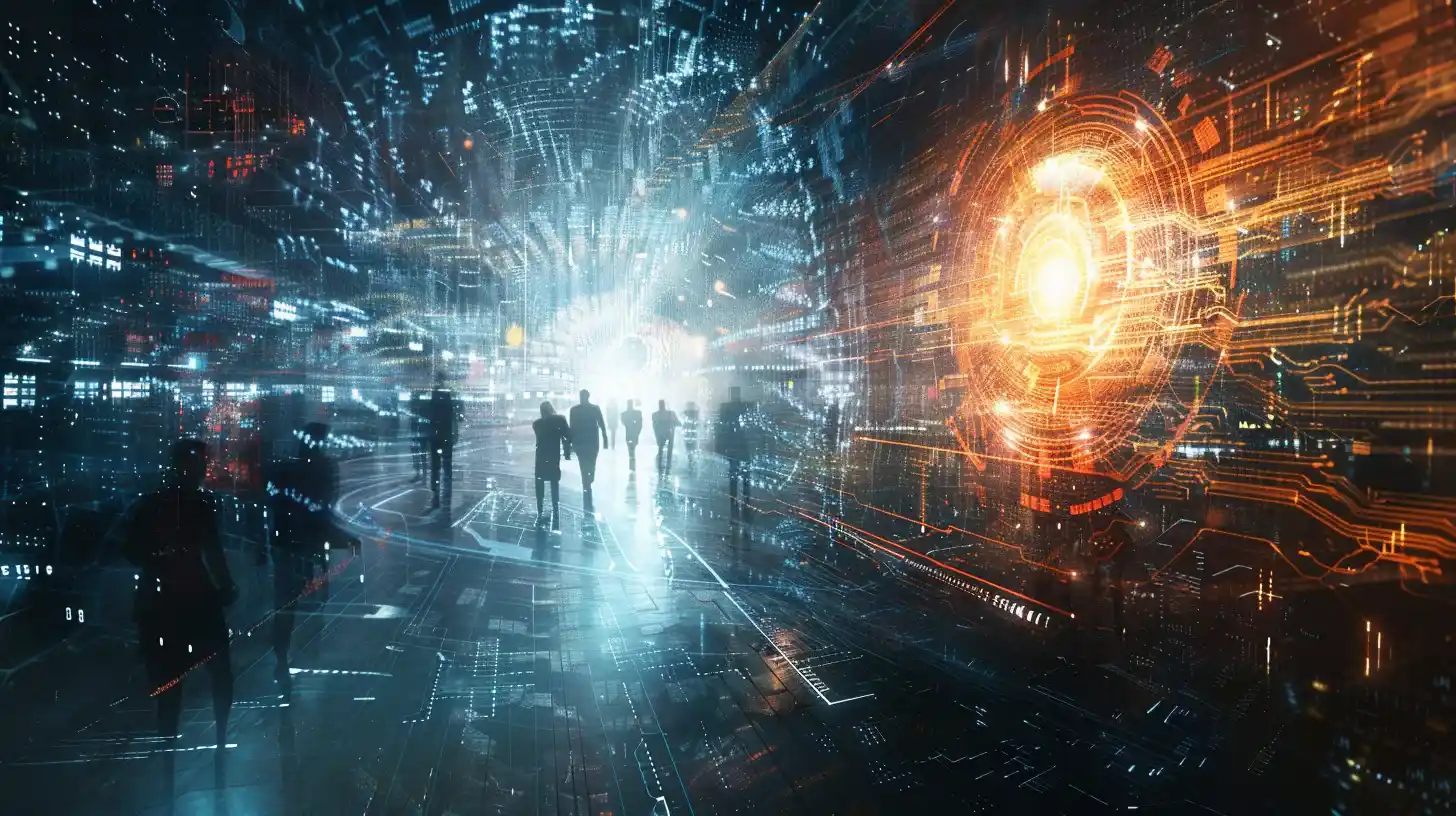Table of Contents
The digital era is witnessing an unprecedented surge in cybersecurity AI threats, with hackers constantly devising new strategies to breach security protocols. Amidst these growing concerns, artificial intelligence (AI) emerges as a beacon of hope, offering robust solutions to fortify defenses against such nefarious activities.
Sundar Pichai, CEO of Google, recently highlighted the pivotal role of Cybersecurity AI at the Munich Security Conference, shedding light on its potential to significantly enhance our digital safeguarding mechanisms.
AI: A Double-Edged Sword in Cybersecurity
While AI’s advancements have raised alarms over potential misuse, Pichai’s insights reveal a more optimistic perspective. He emphasized AI’s capacity to bolster cybersecurity, notably by accelerating the detection and response to threats. This technological leap is crucial in a landscape where cyberattacks are not only becoming more frequent but also more sophisticated.
According to Cybersecurity Ventures, the global economy suffered an estimated $8 trillion loss due to cyberattacks in 2023, a figure expected to soar to $10.5 trillion by 2025.

The Defender’s Dilemma and AI’s Role
The traditional cybersecurity challenge, often described as the defender’s dilemma, posits that while attackers need to succeed only once, defenders must maintain constant vigilance. Here, AI steps in as a game-changer. By equipping defenders with tools that can scale their efforts, AI shifts the balance, offering a more proactive stance against cyber threats.
Pichai’s assertion that “AI disproportionately helps the people defending” underscores the strategic advantage AI confers in the ongoing battle against cybercriminals.
Google’s Initiative and the Global Cybersecurity AI Landscape
Google’s commitment to enhancing cybersecurity AI is evident in its recent announcement of new AI tools and infrastructure investments. Among these is Magika, a free, open-source tool designed to detect malware, illustrating the practical applications of AI in combating cyber threats. This initiative is part of a broader effort to create a safer digital environment, highlighted by a pact signed by major tech companies.
This agreement aims to prevent AI tools from being misused to disrupt democratic processes, showcasing the industry’s recognition of the critical role AI plays in cybersecurity.
The Rise of Generative AI and Its Implications
The evolution of generative AI has introduced new dynamics into the cybersecurity AI arena. State-backed hackers from nations such as Russia, China, and Iran are reportedly leveraging AI to sophisticate their cyber espionage efforts. However, the defensive capabilities AI offers are also evolving. Tools inspired by ChatGPT, for instance, are being used not just by attackers but also by defenders to reverse engineer and neutralize threats more effectively.
Mark Hughes, president of security at DXC Technology, highlighted the “significant gains” made possible by AI, emphasizing the speed at which cybersecurity AI professionals respond to attacks.

Conclusion: Navigating the Future of Cybersecurity with AI
The discourse around Cybersecurity AI is complex, woven with challenges and opportunities. As Sundar Pichai and other industry leaders suggest, the key lies in harnessing AI’s potential responsibly to shift the balance of power from attackers to defenders. With strategic investments and collaborative efforts, the future of cybersecurity looks promising, powered by AI’s transformative capabilities.
As we move forward, it is imperative for policymakers, cyber security analysts, and civil society to work together, ensuring that AI serves as a force for good in the digital domain, safeguarding our interconnected world against the evolving landscape of cyber threats.
Navigating the Surge of Software Vulnerabilities with AI Innovations
The realm of software is witnessing a concerning surge in new vulnerabilities, surpassing 22,000 in 2022, marking the highest number in more than ten years. The task of keeping up with constantly evolving threats can be daunting for cybersecurity experts. Nevertheless, the emergence of machine learning-driven cybersecurity solutions brings a glimmer of hope.
Leading tech companies such as Google, IBM, and Microsoft are taking the lead in developing sophisticated AI systems to identify and counter threats. For instance, Google’s Project Zero has pledged $10 billion over five years to bolster cybersecurity efforts. Their dedicated team works tirelessly to uncover and patch web vulnerabilities, ensuring the safety of online platforms.
Moreover, Google Play Protect scans over 100 billion apps for signs of malware and cyber risks. On the other hand, Microsoft’s Cyber Signals initiative leverages AI to analyze a massive 24 trillion security signals, keeping tabs on 40 nation-state groups and 140 hacker groups. This proactive approach enables them to pinpoint malicious activities and software flaws, preventing a staggering 35.7 billion phishing attacks and 25.6 billion identity theft incidents on corporate accounts.